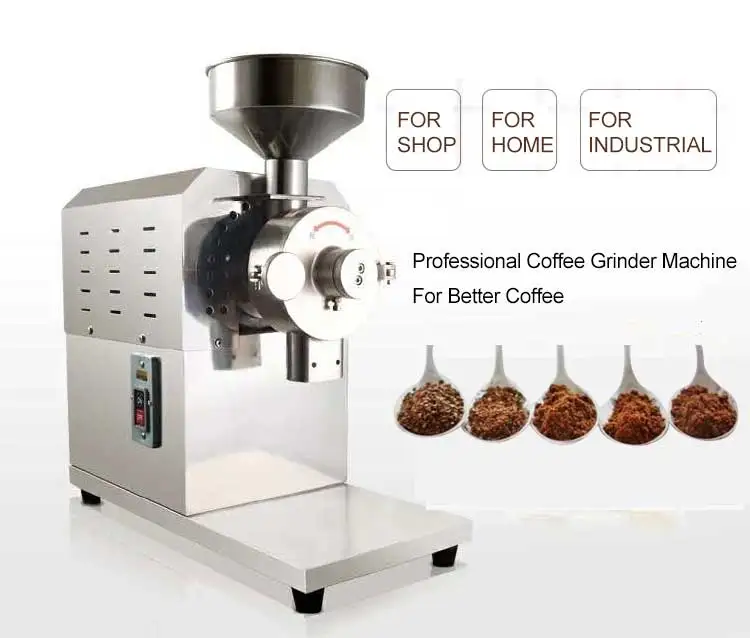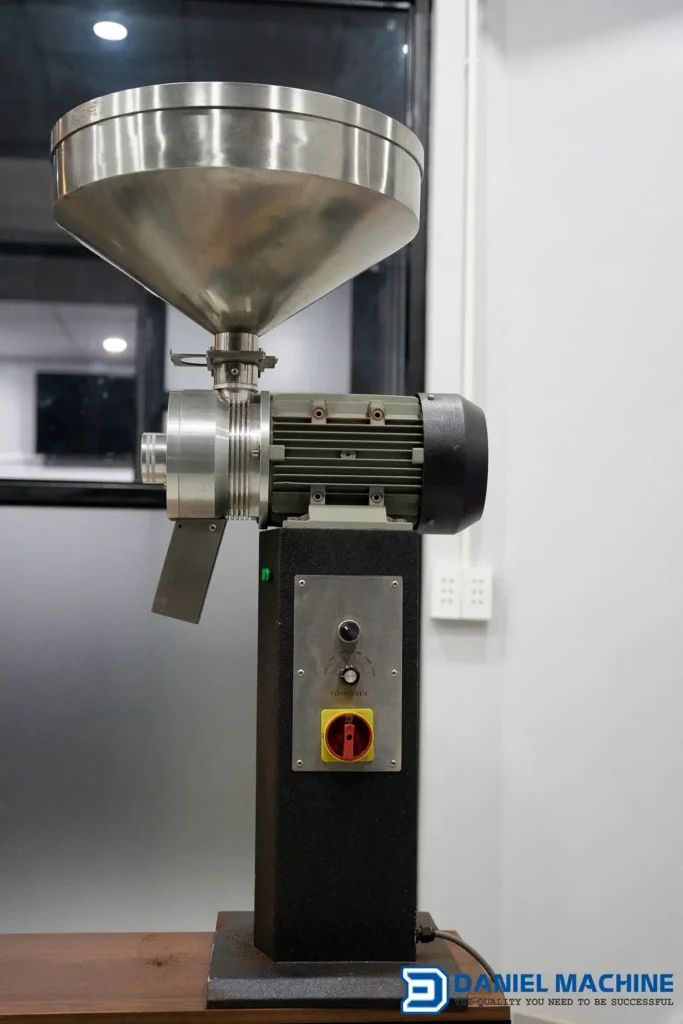Industrial Coffee Grinder: Cost, Quality, and Performance Explored
Industrial Coffee Grinder: Cost, Quality, and Performance Explored
Blog Article
Just How to Select the Perfect Industrial Coffee Grinder for Your Organization
Picking the perfect commercial coffee mill for your company is a complex decision that needs cautious factor to consider of numerous essential elements. Furthermore, recognizing the various types of grinders offered can dramatically affect your operational efficiency.
Assess Your Grinding Requirements
When choosing a commercial coffee mill, one need to initially assess their grinding needs to guarantee ideal efficiency and uniformity. This preliminary analysis entails understanding the volume of coffee to be processed daily, in addition to the preferred work dimension for numerous developing approaches. A high-capacity mill might be necessary for companies serving big amounts of coffee, while smaller sized operations might find a much more small version enough.
Furthermore, it is vital to take into consideration the sorts of coffee beans being utilized, as various beans might need details grinding techniques to accomplish the very best taste account. As an example, oily beans could require a grinder developed to handle such characteristics without clumping or overheating.
An additional essential variable is the required work consistency. Specialized coffee businesses typically demand specific grind sizes to improve extraction and taste, making it crucial to choose a mill that can deliver consistent results. Evaluating the offered space and electrical needs will aid in choosing a mill that fits perfectly right into your operational process. By extensively evaluating these variables, services can make informed choices that align with their coffee grinding requirements, inevitably resulting in a superior product and completely satisfied customers.
Understand Grinder Kind
Understanding the different kinds of industrial coffee grinders is important for making an educated selection that fulfills particular functional requirements. There are mostly two categories of grinders: blade mills and burr mills.
Blade grinders use spinning blades to slice the coffee beans, resulting in an irregular grind dimension - Industrial Coffee Grinder. While they might be more budget friendly, they are commonly not ideal for business applications where accuracy is necessary
On the other hand, burr grinders provide a more consistent work by squashing the beans in between 2 surfaces. They can be additional categorized into level burr and conelike burr mills. Flat burr mills provide a constant work size and are usually favored for espresso preparation, while conelike burr grinders are versatile and can handle a series of mixture techniques, from espresso to French press.
When selecting a mill, think about the certain needs of your company, consisting of wanted grind uniformity, manufacturing volume, and the kinds of coffee drinks you intend to supply - Industrial Coffee Grinder. Each grinder type has its benefits and limitations, so recognizing these subtleties enables informed decision-making that lines up with operational objectives
Evaluate Grind Size Consistency
Achieving work size consistency is vital for producing high-quality coffee, as variants in particle dimension can considerably influence extraction and taste. When choosing a commercial coffee grinder, it is crucial to examine how well the equipment preserves harmony in grind dimension across different sets. Inconsistent work sizes can cause uneven removal, leading to a mug that might taste weak or extremely bitter.
To examine grind size uniformity, think about mills with features such as adjustable work settings and high-grade burrs. Burr grinders, in specific, excel in creating consistent fragment sizes compared to blade mills. The product and shape of the burrs play a crucial duty, with stainless steel and ceramic choices offering longevity and precision.

Take Into Consideration Manufacturing Ability
In the fast-paced world of coffee production, thinking about production capability is vital for organizations intending to fulfill need without giving up top quality. The manufacturing ability of a commercial coffee mill straight affects a company's ability to fulfill orders effectively, take care of supply, and reply to rising and fall market fads.
When assessing manufacturing ability, official site it is vital to evaluate the mill's result price, normally determined in pounds per hour. This measurement should straighten with your organization's predicted sales quantity and growth targets. As an example, a coffee shop with a high turn over may require a mill that can refine a number of hundred extra pounds daily, while a smaller sized procedure may be enough with a reduced ability design.
In addition, think about the type of coffee being refined. Different beans and blends might affect grinding speed and performance, requiring a mill with the ability of handling varied production requirements. It's also worth considering the grinder's capacity to maintain regular high quality under high result conditions, as any changes can affect the end product.
Ultimately, selecting a mill that matches your business's manufacturing capacity will guarantee you stay receptive and competitive to client expectations.

Budget and Upkeep Aspects
When assessing the appropriate industrial coffee maintenance, budget and grinder elements play a significant duty in the general decision-making process. A first investment in a high-grade mill can yield long-term benefits, however it's necessary to establish a clear spending plan that lines up with your organization's operational demands. Consider both the acquisition price and prospective functional prices, such as power consumption and replacement components.
Upkeep is an additional essential element that can affect your budget plan. Industrial coffee grinders call for routine maintenance to guarantee ideal efficiency and durability. Examine the manufacturer's suggestions for maintenance, including cleaning timetables and components replacement, as these will certainly affect long-term functional costs. Additionally, consider the availability of service and assistance, as trustworthy aid can reduce downtime and repair work expenses.

Spending in a mill that is sturdy yet easy to maintain can conserve cash gradually. While lower-priced options might be appealing, they might sustain higher maintenance expenses and decreased efficiency. Inevitably, stabilizing first prices with long-lasting upkeep and operational effectiveness will direct you to the finest choice for your company's coffee grinding demands.
Final Thought
Choosing the ideal industrial coffee grinder demands a thorough assessment of grinding requirements, mill types, grind dimension uniformity, manufacturing capability, and monetary factors to consider. An appropriate mill not just enhances the top quality of the coffee produced click to investigate but likewise contributes to the general success and earnings of the venture.
Specialized coffee organizations frequently demand accurate work visit their website sizes to enhance removal and flavor, making it essential to choose a grinder that can provide uniform results. Apartment burr mills supply a regular grind size and are normally favored for coffee preparation, while conical burr mills are functional and can handle a variety of brew methods, from espresso to French press.
When picking a commercial coffee grinder, it is crucial to examine exactly how well the maker maintains uniformity in work size across various sets. Burr mills, in certain, stand out in producing uniform particle sizes compared to blade mills.Choosing the optimal commercial coffee mill requires an extensive assessment of grinding needs, mill types, grind dimension uniformity, production ability, and monetary factors to consider.
Report this page